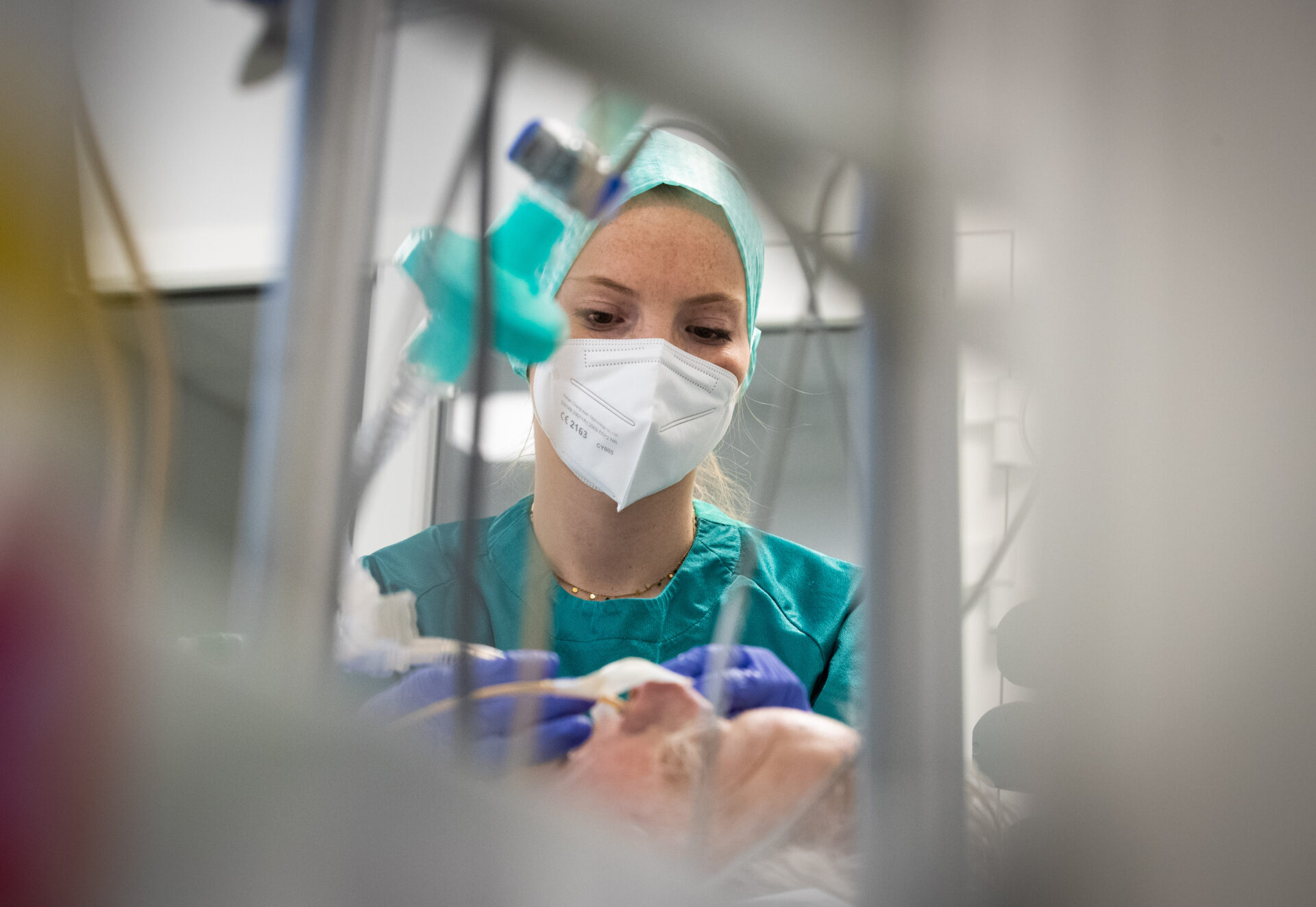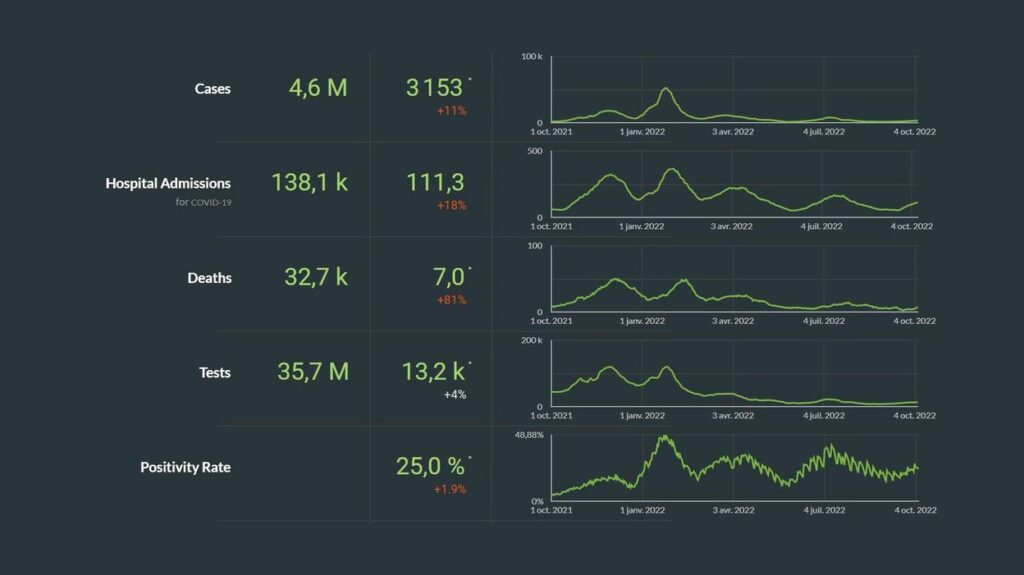After Covid-19 cases increased briefly in Belgium in recent weeks, this trend seems to be slowly turning according to figures published by the Sciensano Institute of Public Health on Tuesday morning.
Between 8 and 14 October, an average of 2,748 new daily infections were identified, a 13% decrease from the previous week.
The average number of tests taken per day increased slightly to 12,500 per day, while the positivity rate has fallen to 23.4%, meaning slightly fewer than one in four tests was positive.
Omicron BA.5 remains the dominant strain, accounting for 86.8% of all infections. The strain is said to be no more infectious than the other Omicron subvariants but is effective at circumventing people’s accumulated immunity.
In the same week, the number of deaths caused by Covid-19 has risen to a daily average of 9.4 (+32%), the highest since mid-August.
The total number of deaths in Belgium since the start of the pandemic is 32,810; however, this includes people who died of another cause but who were infected, meaning it is an overestimate of Covid-19 deaths.
Situation in Belgian hospitals
In the last seven days, an average of 107.4 patients suffering from Covid-19 were admitted to hospitals each day (-4%). This figure only includes the number of people hospitalised because of the virus.

Credit: Belga / Benoit Doppagne
The total number of people infected with the virus in Belgian hospitals remains relatively stable at 1,521, while the number of patients being treated in intensive care sits at 77, ten more than last Friday.
This number does include patients admitted with a different condition who later tested positive.
Reproduction rate, incidence, and total vaccinations
The reproduction rate (the average number of people that contract the virus from each infected person) has dropped below 1 to 0.98. When this figure is below 1, it means that the epidemic is slowing down in Belgium.
The incidence (the number of new cases per 100,000 inhabitants) has dropped slightly to 357 over the past 14 days.
Related News
- No face masks in primary school: Flanders agrees on Covid-19 education plan
- New Covid-19 wave should not be as high as last year
As of Saturday, more than 7.2 million people received a booster dose of the vaccine, representing 76% of over-18s and 62% of the entire population, while more than 3 million people have received a second booster dose – equivalent to 26% of the total population.
Adults across all regions in Belgium can now get their additional booster shots (without invitation in Wallonia and Brussels). Find out why this latest jab is important.

